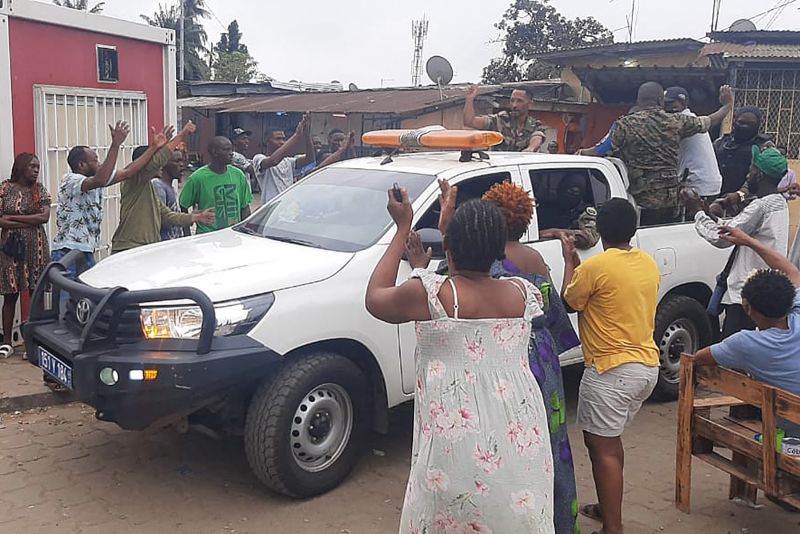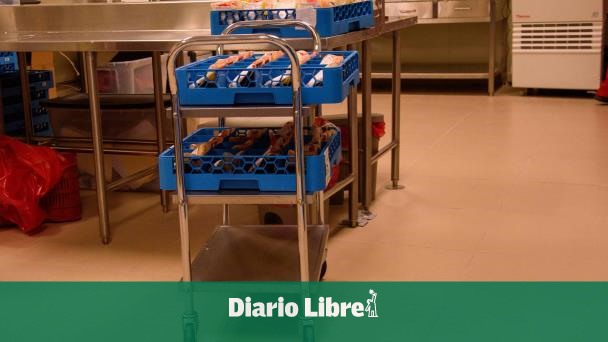declared the formation of a National Restoration Council. However, the attempt was quickly thwarted by loyalist forces.
The current coup attempt comes after months of political tension in Gabon. President Ali Bongo Ondimba, who has been in power since 2009, faced widespread protests and allegations of electoral fraud during the recent presidential election. The opposition accused Bongo of rigging the election in his favor and demanded a recount.
The military officers who seized power claimed to represent the “defense and security forces” of the country and accused the Bongo regime of corruption and mismanagement. They declared the dissolution of all government institutions, including the presidency, the parliament, and the constitutional court.
The international community has condemned the coup attempt and called for a peaceful resolution to the crisis. France, the former colonial power in Gabon, expressed its concern and urged respect for the election results. The European Union’s foreign policy chief warned that the situation could increase instability in the region.
Gabon has a history of political instability and power struggles. The country gained independence from France in 1960 and has since experienced several coups and attempted coups. The Bongo family has ruled Gabon for over 50 years, with Ali Bongo succeeding his father, Omar Bongo, in 2009.
The current coup attempt raises concerns about the future of democracy in Gabon and the stability of the region. The international community will be closely monitoring the situation and urging a peaceful resolution to the crisis.Military officers in Gabon have staged a coup, seizing power from President Ali Bongo Ondimba and threatening the family’s long-standing rule over the country. The officers appeared on national television to announce the president’s house arrest, leading to celebrations and reports of gunfire in the capital city. An unnamed junta spokesperson confirmed the president’s house arrest and stated that he is surrounded by his family and doctors. The coup leader, General Brice Oligui Nguema, was seen celebrating with soldiers in the capital. The military officers claimed to represent the defense and security forces of the country and declared that all institutions of the republic, including the government, Senate, National Assembly, and Constitutional Court, are dissolved. The election results were also declared void, and the country’s borders were shut. The coup has been met with condemnation from overseas, with France denouncing the military takeover and expressing concern for the situation on the ground. This is the latest coup in a series of political upheavals in former French colonies, including Mali, Guinea, Burkina Faso, Chad, Niger, Tunisia, and now Gabon. The recent presidential election in Gabon was marred by delays and allegations of fraud, with President Ali Bongo declared the winner with 64.27% of the vote. His main challenger, Albert Ondo Ossa, came in second place with 30.77%. Ali Bongo took over from his father, Omar Bongo, in 2009 after his father’s death. Omar Bongo had ruled Gabon for nearly 42 years, imposing a one-party system before allowing multi-party rule in 1991. The country has a history of power struggles and unrest over Bongo’s rule, with violent protests and a failed coup attempt in 2016 and 2019. The international community has expressed concern over the coup, with the EU’s foreign policy chief warning that it could increase instability in the region.

What are the potential implications of this coup attempt for the future of democracy in Gabon and the overall stability of the region
Seized power in a coup attempt, leading to the formation of a National Restoration Council. However, their efforts were quickly thwarted by loyalist forces.
This coup attempt comes amidst a backdrop of political tension in Gabon. President Ali Bongo Ondimba, who has been in power since 2009, faced widespread protests and allegations of electoral fraud during the recent presidential election. The opposition accused Bongo of rigging the election, demanding a recount.
The military officers leading the coup claimed to represent the “defense and security forces” of Gabon. They accused the Bongo regime of corruption and mismanagement and announced the dissolution of all government institutions, including the presidency, parliament, and constitutional court.
The international community has strongly condemned this coup attempt and called for a peaceful resolution to the crisis. France, the former colonial power, expressed concern and urged respect for the election results. The European Union’s foreign policy chief warned of potential instability in the region.
Gabon has a troubled history of political instability and power struggles. Since gaining independence from France in 1960, the country has witnessed several coups and attempted coups. The Bongo family has held power for over five decades, with Ali Bongo succeeding his father, Omar Bongo, in 2009.
This latest coup attempt raises concerns about the future of democracy in Gabon and the stability of the region. The international community will closely monitor the situation and continue to push for a peaceful resolution to the crisis.



This is deeply concerning news. Hope the situation can be resolved peacefully and swiftly for the sake of the people in Gabon.